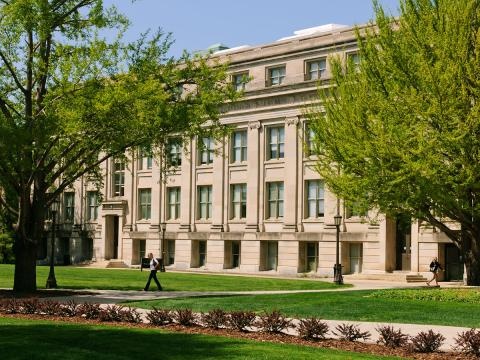University of Iowa mathematics assistant professor Yangyang Wang received a Collaborative Research in Computational Neuroscience (CRCNS) award from the National Institutes of Health (NIH) totaling more than $1.7 million over the next five years.

The research grant will allow Wang and her team to pursue the project “Evidence-based modeling of neuromodulatory action on network properties”. Together with Dr. Alfredo Garcia, of the University of Chicago Institute of Integrative Physiology, and his lab, they will explore neuromodulatory mechanisms in neuronal networks through a focus on respiration. The team’s findings could be relevant to opioid use disorder behaviors like relapse, tolerance, and overdose.
Without a mathematical model, this type of research can be extremely complicated. Wang’s work will help simplify some of the processes needed to understand neural control of breathing.
Wang's research includes computational neuroscience and dynamical systems, with a focus on modeling and analyzing neural dynamics in central pattern generators and sensory feedback control in complex adaptive biological systems.
She says this grant will help push forward her contributions to the mathematical-biology field as well as the interdisciplinary training of more students and postdocs.
“What makes me excited about this grant is we can combine electrophysiological experiments and computational modeling across different levels to tackle problems that cannot be easily understood just by experimental work alone or just by modeling alone,” Wang says.
The mathematics department is part of the UI College of Liberal Arts and Sciences —and is dedicated to the mission of research and education in pure and applied mathematics.
